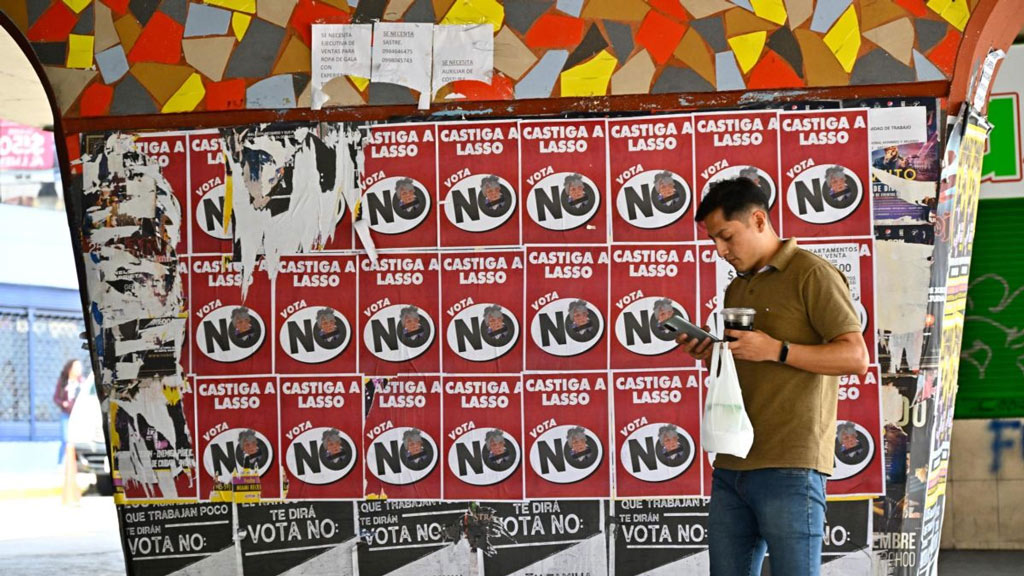The electorate will have to answer eight questions proposed by the Executive to reform the Constitution on issues such as security, autonomy of the Attorney General’s Office, political representation and environment.
While the Executive assures that with the approval of these proposals the country will be safer, institutionally stronger and Ecuadorians will be better represented in bodies such as the National Assembly (parliament), several sectors assure that the trap is in the annexes.
For example, one of the proposals envisions reducing the number of members of the National Assembly (parliament) to one per province and an additional one for each 250,000 inhabitants, two national assembly members for each million Ecuadorians and one assembly member for each 500,000 Ecuadorians living abroad.
The consultative procedure is rejected by native people organizations, peasants, workers and students, for whom none of the questions are aimed at solving the country’s most pressing problems.
Voting began this Thursday when 5,497 persons,deprived of their freedom without executed sentences, casted their votes.
This Friday, 711 other persons aged 50 years and older with physical disabilities peventing them from going to the polling stations on voting day, will vote.
More than 13 million Ecuadorians are called next Sunday to elect 23 prefects and vice-prefects, 221 mayors, 864 urban councilors and 443 rural councilors, and 4,109 parish board members.
mh/mem/avr










